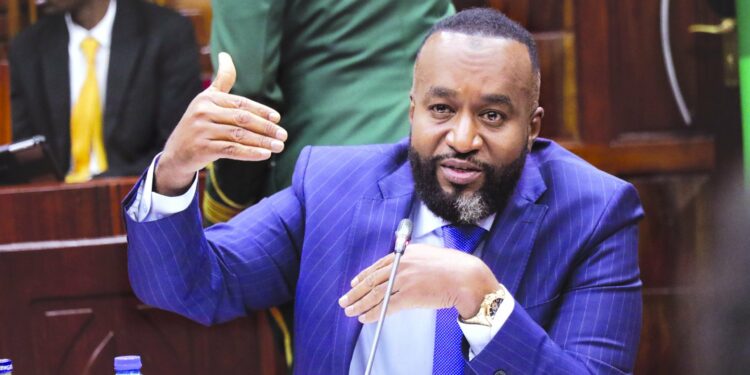KAMPALA — A Kenyan logistics company, Autoports Freight Terminals Ltd, at the center of a controversy in Uganda over a lucrative locomotive deal worth UGX 80 billion, has been linked to Kenyan Cabinet Secretary Ali Hassan Joho.
According to the Kenyan press, Mr. Joho, Kenya’s Cabinet Secretary for Mining and Blue economy, is associated with the firm, whose dealings with the Uganda Railways Corporation has stirred controversy — the Kenyan based The EastAfrican reported in its current weekly edition.
The deal, which has been shrouded in secrecy, involves the leasing of four mainline locomotives to Uganda Railways Corporation (URC) for a period of 10 years.
But what has raised eyebrows is the company’s demand for a hefty daily lease fee of USD 3,500 per locomotive, which translates to a staggering UGX 13.3 billion per year.
According to The EastAfrican, the Kenyan-based firm is seeking to supply Uganda Railways Corporation with locomotives as the country upgrades its railway network.
Insiders reveal that the deal has been facilitated by high-ranking government officials, who have been pushing for its approval despite concerns over its viability. The officials, who spoke on condition of anonymity, claim that the deal is a “done deal” and that Autoports has already begun making arrangements to supply the locomotives.
As the controversy surrounding the deal continues to simmer, officials at URC remain tight-lipped about the details.
But insiders reveal that the corporation is under pressure to finalize the deal, which has been pending for months.
“This kind of expenditure is unsustainable, especially in the long term,” said a financial analyst with knowledge of the railway sector. “At a time when the government is struggling to balance its budget, spending such large sums on a lease agreement that doesn’t offer any long-term ownership of assets seems like a poor investment.”
Despite these concerns, URC has continued to push for the deal, arguing that it will help ensure a competitive rail freight market, thereby stabilizing commodity prices and ensuring that Uganda does not lose out on valuable trade opportunities. However, the reality is that the proposed lease deal may exacerbate the financial challenges already facing the railway corporation and further strain the country’s limited resources.
The government is expected to make a final decision on the lease agreement in the coming months.
The controversy comes at a time when the country is preparing to commence the cntructuction of the much sought after Standard Gauge Railway (SGR) project, which will provide Uganda with a modern railway system capable of handling larger volumes of cargo.
The SGR is expected to feature 10 locomotives, which will be able to significantly increase the capacity of Uganda Railways to move freight across the country. This raises the question: is it wise for the corporation to invest in leasing locomotives at a time when it is set to receive a significant upgrade in its fleet?
Do you have a story in your community or an opinion to share with us: Email us at editorial@watchdoguganda.com










